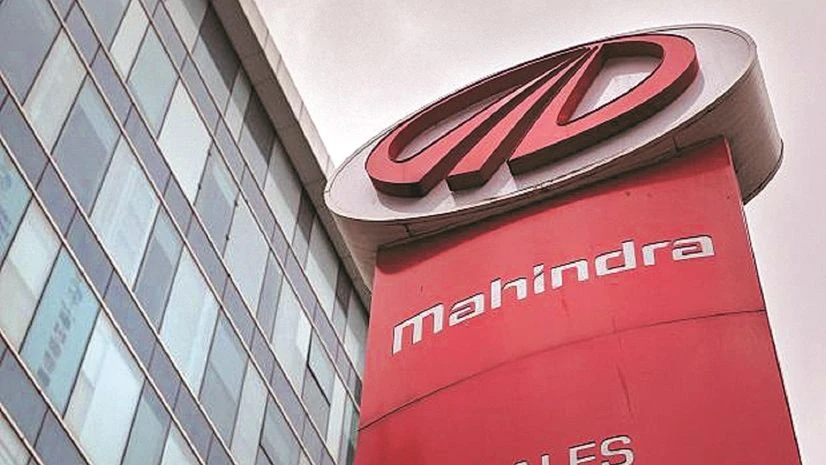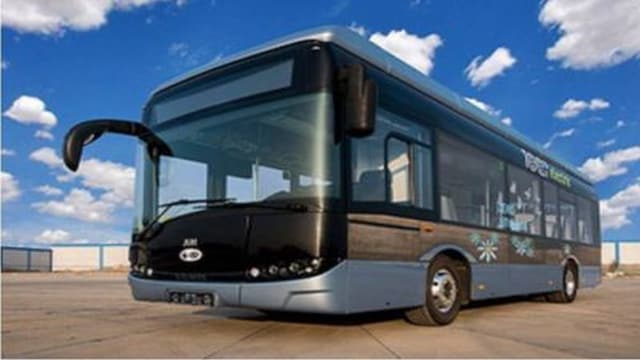In a landmark development that has sent ripples across India’s automotive sector, Mahindra & Mahindra Ltd (M&M) has announced the acquisition of a majority stake in SML Isuzu Ltd, marking a pivotal moment in the country’s commercial vehicle (CV) landscape. The move, finalized on April 26, 2025, is being hailed as a transformative step that positions Mahindra to double its market share in the truck and bus segments, while also sparking intense debate among investors, competitors, and industry observers. The acquisition comes at a time when India’s CV market is poised for rapid expansion, and Mahindra’s strategic play is set to reshape the competitive dynamics for years to come.
SML Isuzu’s manufacturing facility in Punjab, operating at 65–70% capacity, is a key asset in this deal. Known for its in-house production of critical components and cost-efficient processes, the plant aligns with Mahindra’s focus on frugal engineering. Mahindra plans to integrate its high-performance engines and supply chain networks to reduce costs and improve margins. The combined entity will prioritize platform-sharing and component standardization, which could lower production costs by 8–10% over the next three years, according to industry estimates. This synergy is critical as Mahindra aims to compete with Tata Motors and Ashok Leyland in price-sensitive segments.
Mahindra’s acquisition paves the way for cross-pollination of technology between its EV-focused “Born Electric” platform and SML Isuzu’s expertise in diesel-powered commercial vehicles. The company plans to co-develop hybrid and electric variants of SML’s best-selling models, including the Traveller buses, targeting state transport corporations and private fleet operators. Early prototypes of an electric school bus, leveraging Mahindra’s battery-swapping tech, are slated for trials in 2026. This aligns with India’s push for cleaner public transport under the FAME III scheme, expected to allocate ₹30,000 crore for EV adoption.
)
)
Mahindra’s Strategic Leap: Details of the SML Isuzu Acquisition
Mahindra & Mahindra will acquire a commanding 58.96% stake in SML Isuzu for ₹555 crore, purchasing shares at ₹650 each-a substantial deal that involves buying out Sumitomo Corporation’s 43.96% holding and Isuzu Motors’ 15% stake. In compliance with SEBI regulations, Mahindra will also launch a mandatory open offer to acquire up to 26% additional shares from public shareholders, potentially increasing its control even further. The acquisition is aimed at strengthening Mahindra’s position in the >3.5 tonne commercial vehicle segment, where it currently holds a modest 3% market share, compared to its commanding 52% in the <3.5 tonne light commercial vehicle (LCV) space.
SML Isuzu, a listed company with a strong pan-India presence, brings to the table a robust product portfolio, a 16% market share in the ILCV bus segment, and a reputation for engineering excellence and frugal manufacturing. In FY24, SML Isuzu reported operating revenue of ₹2,196 crore and EBITDA of ₹179 crore, underscoring its profitable operations and strategic value as a partner.
Mahindra’s immediate focus will be on scaling SML Isuzu’s existing portfolio, including the popular Traveller and S-Truck lines, while introducing new electric and hydrogen-compliant models by 2027. The company plans to target fleet operators and logistics firms with customized financing solutions, a segment where Mahindra already has a strong foothold. Analysts note that SML’s expertise in sub-5-tonne trucks could help Mahindra counter Maruti Suzuki’s upcoming entries in the compact commercial vehicle space. Additionally, Mahindra may revive SML’s dormant export channels in Africa and Southeast Asia, leveraging its global tractor and SUV networks.
Market Impact: Stock Volatility and Investor Sentiment
The announcement of the acquisition triggered immediate market reaction, with SML Isuzu shares hitting a 10% lower circuit on April 28, 2025, as investors digested the implications of Mahindra’s entry. The acquisition price of ₹650 per share was at a notable discount to SML’s previous closing price of around ₹1,773, leading to a sharp correction as the market adjusted to the new valuation. Meanwhile, Mahindra’s own stock saw a modest uptick, reflecting investor optimism about the company’s growth prospects in the CV segment.
Industry analysts have described the acquisition as a “strong strategic fit,” highlighting the potential for cost optimization, platform sharing, and supplier network synergies. The move is expected to turbocharge Mahindra’s ambitions, with the company targeting a doubling of its CV market share to 6% in the near term, and aiming for 10–12% by FY31 and over 20% by FY36.
The transaction, including the open offer, awaits approval from the Competition Commission of India (CCI), which is expected to review market concentration concerns in the >3.5-tonne segment. If approved, Mahindra’s total outlay could reach ₹1,140 crore (including the ₹585 crore open offer), funded entirely through internal accruals. Kotak Investment Banking, advising Mahindra, projects a 15–18% return on capital employed (ROCE) for the combined entity by FY28, driven by margin expansion and market share gains. However, investors remain cautious about integration risks, reflected in SML Isuzu’s stock correction post-announcement.

Operational Synergies and Manufacturing Strengths
One of the key advantages of the acquisition is the operational synergy between Mahindra and SML Isuzu. SML’s manufacturing facility in Punjab, currently running at 65–70% capacity, is renowned for its efficiency and in-house production of key aggregates, which contributes to a competitive cost structure. Mahindra plans to leverage its own high-quality engines and efficient manufacturing processes to further enhance productivity and profitability across the combined entity.
Management has emphasized that there will be no retrenchment or major organizational restructuring; SML Isuzu will remain a listed company and continue to operate as a separate legal entity, but with close operational integration to maximize synergies. The focus will be on optimizing costs, sharing technology platforms, and expanding supplier and distribution networks to unlock new growth opportunities.
Mahindra’s ambition to capture 20% of the CV market by FY36 hinges on electrification and alternative fuels. The company plans to co-develop electric buses and hydrogen-compliant trucks using SML’s chassis expertise and Mahindra’s EV technology from its Born Electric division. This acquisition also positions Mahindra as a formidable player in India’s bus segment, competing directly with Ashok Leyland and Volvo Eicher. With the CV industry poised to grow at 8–10% annually, driven by infrastructure spending and e-commerce logistics, Mahindra’s bet on SML Isuzu could redefine its role in India’s automotive future.
Mahindra plans to revive SML Isuzu’s dormant export channels in Africa, Southeast Asia, and the Middle East, leveraging its existing presence in 100+ countries. The focus will be on right-hand-drive markets like Kenya and Thailand, where SML’s rugged, fuel-efficient buses have historical brand recognition. Mahindra will also explore badge-engineered exports, combining Isuzu’s chassis with Mahindra’s cost-optimized drivetrains, targeting price-sensitive markets. This global push aims to achieve 15% of total CV revenue from exports by FY30, up from SML’s current 2% overseas contribution.
Competitive Landscape: Ambitions and Challenges
The commercial vehicle market in India is fiercely competitive, with established players like Tata Motors and Ashok Leyland dominating the space. The acquisition of SML Isuzu is seen as a bold attempt to break into the mid and heavy commercial vehicle (M&HCV) segment, where the company has traditionally lagged behind. By combining SML Isuzu’s established brand and distribution with technological prowess and financial muscle, the combined entity aims to create a formidable challenger to the incumbents.
Leadership, including CEO Anish Shah and Executive Director Rajesh Jejurikar, have articulated a clear vision for the future-scaling up market share, investing in product innovation, and tapping into the fast-growing fleet and logistics sectors. The acquisition is also expected to accelerate the push into electric and alternative fuel commercial vehicles, leveraging both companies’ R&D capabilities and global partnerships.
With SML Isuzu’s 200+ dealerships and 500+ touchpoints nationwide, the combined entity aims to create India’s largest commercial vehicle sales network. Integrated service centers offering maintenance for both brands under one roof will reduce downtime for fleet operators. Special emphasis will be placed on rural markets, where tractor dealerships can double as CV service hubs. A unified digital platform for parts procurement and inventory management is also planned, targeting a 20% reduction in aftermarket costs.
Tata Motors and Ashok Leyland are closely monitoring the acquisition’s impact, with both rivals accelerating their own EV and CNG truck launches. Tata recently slashed prices of its Ultra T.9 range by 3–5%, while Ashok Leyland is fast-tracking its modular Husky platform for electric and hydrogen trucks. Industry analysts predict a price war in the 3.5–7.5 tonne segment, where the Mahindra-SML alliance could undercut rivals by 7–10% through shared component sourcing. However, challenges remain in matching the established service networks of market leaders, who collectively hold 75% of the heavy truck segment.

Financial Outlook and Future Roadmap
The acquisition is being funded through internal cash accruals, with no immediate plans for external fundraising. The company has indicated that while some investment will be needed to ramp up SML Isuzu’s capacity, it will not be substantial in the short term. The transaction, including the open offer, is subject to regulatory approvals from the Competition Commission of India and is expected to close later in 2025.
Looking ahead, the goal is to achieve fivefold growth in emerging businesses, with the commercial vehicle segment playing a central role. The company is targeting a market share of 6% in the truck and bus segment by FY26, 10–12% by FY31, and over 20% by FY36-ambitious targets that will require sustained investment, innovation, and execution.
Mahindra’s acquisition of SML Isuzu stands as one of the most significant moves in India’s commercial vehicle sector in recent years. By bringing together two strong players with complementary strengths, the deal is set to reshape the competitive landscape, drive operational efficiencies, and unlock new growth opportunities. As the company pursues its ambitious targets and navigates the challenges of integration and competition, all eyes will be on how this powerful partnership transforms India’s truck and bus market for the future.
Follow: Mahindra Website
Also Read: India Signs Historic ₹63,000 Crore Deal with France to Procure 26 Rafale Marine Jets for Indian Navy

